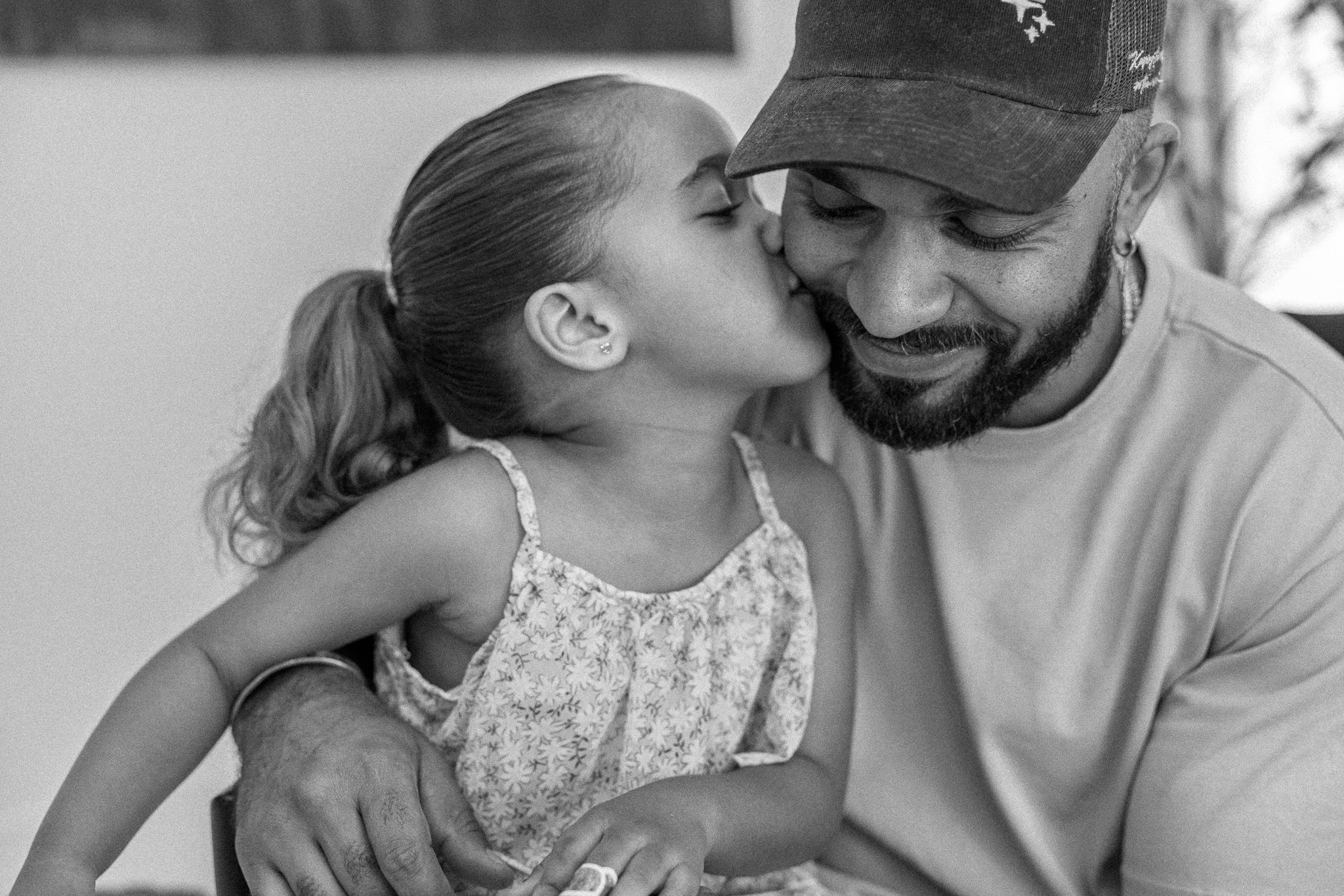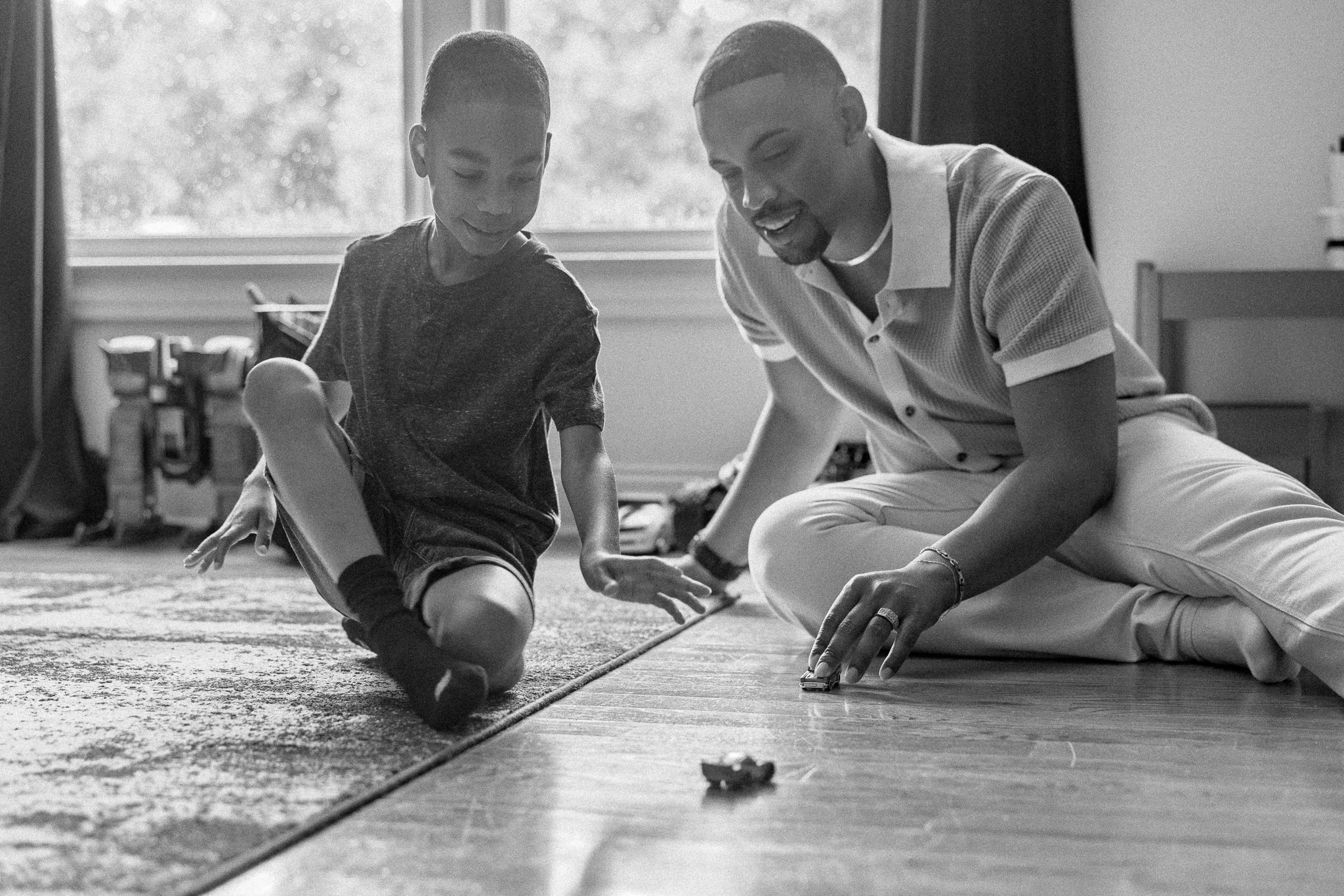
Taylor Dunlap
Credit: Taylor Dunlap

Credit: Taylor Dunlap
From as young as I can remember, I have always loved children. I was the family babysitter, loving camp counselor, “Do my make up!” cheer coach. The idea of being a mother with a family seemed a given at birth. I recall having a journal with baby names – first and middle – etched with hearts around them for when my “true love” and I would be expecting. By my freshman year of high school, I had acquired a Rolodex full of names.
But by the time I reached my freshman year of college, the names underwent a disappearing act. The more opportunity I saw, the more distant my desire to be someone’s mother became. Success and motherhood could no longer coexist – the choice felt either/or.
Related: Childless by Choice: A Powerful Act of Self Love
It was never communicated to me that children were barriers, but I could pick up enough clues to know they were considered weights that would make it harder to obtain personal success. Unknowingly, this rule of thumb had become a part of my DNA. It was hidden so well that during my husband’s and my engagement, I believed, as did he, that my relationship with motherhood would be an easy transition when it arrived. I would soon find out, shortly after exchanging vows, that was not the case. The moment I found out I was pregnant, I cried. I cried unhappy tears as a happily married woman with a college degree.
That positive sign applied a pressure I had never experienced before. There I was, 23 years old, a month into marriage, six months out of undergrad, and I was going to be someone’s mother. ALREADY? A week before learning of my pregnancy I was mapping out the next big step forward. I was settling into life with this man that I knew and loved deeply but hadn’t experienced life with as “just us.”
That positive sign applied a pressure I had never experienced before.
Sitting in the sink with the bathroom door locked, I looked at myself in the mirror and began hearing the words of many women echoing in my ears. I remembered hearing things like, “You two need to wait to have kids, enjoy each other for awhile” and “Once you start having children, the life you live is no longer yours.” Or my favorite, “Babies are expensive; wait until you’re financially stable and then start having children.” The pressure was on, and I’d only known about my child for 45 minutes.
My husband gently knocked on the door and asked me to join him in the bedroom. He looked at me with the most peaceful eyes and gentle smile and said, “We are blessed. This baby can only grow destiny. Don’t let fear steal our blessing.” I would like to say that at that moment I stood in agreement with his beliefs, but I didn’t.
My pregnancy was rough. I couldn’t keep down food for the first six months. It became harder to stay at my job because of my physical complications and stress levels. I went from being a 5’3, 123 pound woman to a whopping 189 pounds by the time I gave birth. I was later diagnosed with preeclampsia which would be the cause of my sweltering 66 pound weight gain. Prior to diagnosis, it was hard to feel beautiful. Seeing amazing mommy bloggers sporting their “only belly” baby bumps in their fashion forward medium sized clothes, I reserved nothing but distaste for myself. Every gathering brought with it an unbearable weight of anxiety. As big as I was, all I wanted was to be hidden.
I went from being a 5’3, 123 pound woman to a whopping 189 pounds by the time I gave birth.
My breasts doubled in size, I saw stretch marks in unreal places, and somehow this man found a way to help me find confidence in my newly stretched skin. The moment I started to complain about my new look, Josiah would lovingly say, “You’re carrying my child, it happens.” “IT HAPPENS” was the phrase that silenced my outrageous expectations for not only my body but my role as a mother and a wife. “It happens” tore down the erroneous belief that I would somehow be the only mother and newlywed that had made mistakes along the way. “It happens” made war with the thought that I couldn’t grow as an individual and be a great mother simultaneously or that financial stability wouldn’t be attainable once our little one arrived. “It happens” reassured me that what I was going through happens on a macro level. That I was not the only woman who has felt unpretty during pregnancy, that had reserves about how well they would mother or fears about how it would affect her marriage. I am not the first to think these thoughts or feel these feelings. But I am the only mother to my child and wife in my new marriage that can accept that conceiving life HAPPENS in marriage, and it should be a joyous journey.

Credit: Taylor Dunlap
July 28th at 6:30 p.m. our daughter, Harmony, was born. After 12 intense hours of labor, she was here. I remember giving that last push, feeling a huge release of pressure, and hearing the voice of my crying baby for the very first time. I broke down and wept – because I was happy, because it was over, because she was unlike anything I expected. When they laid her on my chest, it was as if all the energy to make her was put back into me to embrace her for the very first time. As the tears began streaming down my cheeks onto her precious body, everything I thought I knew of motherhood was a lie. My heart felt like it expanded twice and a peace like no other cloaked me.
July 28th at 6:30 p.m. our daughter, Harmony, was born.

Credit: Taylor Dunlap
Once I saw and felt her skin against mine, I knew this was what I was made for. I was made to be her mother. Watching Josiah’s joy burst from his body is a memory still etched into my soul. He held her with tears in his eyes, in disbelief that the child we made was finally staring back at him. Holding her little fingers he became mesmerized by her…He was never the same after that experience. The Josiah I knew, my Josiah, was now a father. Though I could feel his pride and joy being filled in that moment with the two of us, I could sense this was much bigger moment for him as a husband. The man he became that night in the hospital would soon be tested.
After a few days, we found ourselves in the comfort of home where we would finally test drive all our parental theories. The first few weeks were great. Josiah and our families were home helping me get adjusted to mom life. Even without the sleep, Harmony was precious. The tasks I thought would be morbid to adjust to, like waking in the middle of the night and breastfeeding, weren’t as daunting as I expected. On the other hand physically healing from birth was a big adjustment that I did not account for.
Related: A Better Birthing Experience: How to Thrive During Pregnancy With Chiropractic Pregnancy Care
In my experience, there was so much pain after giving birth. I had such internal and muscular pain that made it unbearable to hold anything but Harmony. Yet again, through this pain Josiah took care of me. The day Josiah went back to work, I remember crying. I believe I cried because I felt I needed him there for support more than any friend or family member could at that time. No one could replace his reassurance of peace for me. So his transition back to work was a lot more felt than I anticipated.
As the weeks turned into months, the huge question had to be answered: “Would I be returning back to the workforce?” Holding my daughter in my arms, staring into her eyes, I felt the answer was a simple: No. But the moment I looked up from her gaze, I could feel myself being challenged to come out of my mothering and back into the workplace.
There was an intangible pull that told me I was missing my moment – that time was being wasted and so were my skill sets.

Credit: Taylor Dunlap
There was an intangible pull that told me I was missing my moment – that time was being wasted and so were my skill sets. My husband graciously put the choice in my hands and adjusted. His work hours lengthened and personal time shortened. I was now a stay-at-home mother at the expense of my husband. Not one time did he complain or find an excuse to be absent. He was there.
As the winter months came, motherhood got harder. With Josiah now working second shift, I spent the majority of the day home by myself with Harmony. I’m not sure when I created a new list of expectations for myself as a stay-at-home mom, but it must have been in the midst of all the YouTube channels I consumed while being home for hours on end. I always felt as if I should be doing more. I felt I had to do more because I wasn’t bringing in physical income – the least I could do was curate a perfect home and raise a perfect daughter.
I wasn’t bringing in physical income – the least I could do was curate a perfect home and raise a perfect daughter.
I did not value motherhood in that season enough. The price I placed on my motherly duties was below its true value. I found myself hypersensitive about motherhood; I compared my motherly duties to my husband’s job, convinced I could make myself believe that what I accomplished each day had worth. At times it got tense, communication became sparse. Our love and affection was being entirely directed towards Harmony, and we both ignored it until I was noticeably not myself.
It had been going on for sometime now, but by mid-February, I hit my low. I was struggling with postpartum depression, a commonplace event in motherhood that had never been communicated to me. There was a great shame that hovered, making me feel less of a mother, less of a wife, and it was hard to get out from underneath it. I was the bones in a valley – though functioning in dysfunction, I was bones.
By mid-February, I hit my low. I was struggling with postpartum depression, a commonplace event in motherhood that had never been communicated to me.

Credit: Taylor Dunlap
Not only was it pulling me under, but how I was processing motherhood affected Josiah tremendously. It weighed on him heavily, and in some ways he felt he failed me as a husband. He beat himself up for being unable to discern my rough adjustment, but I knew it was because I had hid it well. I somehow felt that if I communicated my concerns, I would become a heavier weight to carry along. It was already burdensome enough that I chose to stay home and do “nothing” but care for our daughter. To tell him I was depressed would seem as if I wasn’t grateful for the opportunity to be home with Harmony. To say I was suffering would make his personal sacrifice null and void. At least that’s what kept me quiet. These were the army of lies that kept me silent and suffering.
Related: How Postpartum Depression Sparked Brittany Giles’ Boss Moves as a Wellness Entrepreneur
The truth is, Josiah cared more for my suffering than his long night hours at his job. He cared more for my loss of connection than his personal time. He cared more for the truth that was freeing than the lies that kept me suffering. He cared more. And because of this care, he took all of his PTO (Paid Time Off), turned down an opportunity to attend a conference he had been wanting to go to all year, and booked us flights to Florida. The day he booked the flights, I remember sitting on the bed and he said, “I know you’re not well. I’m not going to the conference. We’re going to Florida.” Hearing of his personal sacrifice for my well-being brought me back to life. His actions read “For better or for worse.” He never once complained about my “worse.” He sat in it with me and he rose with me. His compassion and patience fortified my bones and consequently fortified our love for one another.
Our transition into parenting had many hardships, but it has transformed into the most rewarding aspect of our marriage. I learned perception can kill your experiences and that expectations can apply unnecessary pressure to your relationship. Looking back, I can say that it was the moments of his kindness and his positive perception of me that shattered my unrealistic expectations of motherhood.
I learned perception can kill your experiences and that expectations can apply unnecessary pressure to your relationship.

Credit: Taylor Dunlap
Josiah gave room for life to beget life. He gave room for life to be lived, and in turn he was able to be the light in my life. In no way was he perfect, but he somehow always knew exactly how to be there for me. Each act of love created a wrecking momentum to tear down my fear-based expectations of motherhood and marriage. Vulnerability about our fears and frustrations gave us room to grow into our new roles as parents and spouses. Empathy and grace were easily produced because of our desire to be transparent and intimate.
To this very day, vulnerability is the tool that keeps us loving one another well through our transitions. It has given us room to be weak with one another, to be honest even when its hard, and to be at peace with where we are in our evolution as a couple and as individuals. I had to learn the hard way that my spouse was not expecting me to be perfect at my new roles. His intentions in marrying me were not to make a life with an already perfect woman, but to enjoy life and grow together through the years. As our lives progress, our family will expand and careers will change, but through every transition we hold on to the knowledge that vulnerability is key and when “it happens,” we got each others back.
Related Articles
Bozoma Saint John talks Black motherhood, grief, self-love, and finding joy again. Don’t miss her powerful conversation on building legacy and living boldly.
Tyler Lepley shows the beauty of Black fatherhood, blended family life with Miracle Watts, & raising his three children in this Father Noir spotlight.
Black fathers Terrell and Jarius Joseph redefines modern fatherhood through love, resilience, unapologetic visibility in this Father Noir highlight.
Featured Articles
When Elitia and Cullen Mattox found each other, they decided that they wanted their new relationship together, their union, to be healthier and different.
Celebrate their marriage and partnership with the release of the documentary “Time II: Unfinished Business”
The vision for our engagement shoot was to celebrate ourselves as a Young Power Couple with an upcoming wedding, celebrating our five year anniversary - glammed up and taking over New York.
Our intent is to share love so that people can see, like love really conquers everything. Topics like marriage and finance, Black relationships and parenting.
Meagan Good and DeVon Franklin’s new relationships are a testament to healing, growth, and the belief that love can find you again when you least expect it.
HEY CHI-TOWN, who’s hungry?! In honor of #BlackBusinessMonth, we teamed up with @eatokratheapp, a Black-owned app designed to connect you with some of the best #BlackOwnedRestaurants in YOUR city – and this week, we’re highlighting some of Chicago’s best!











